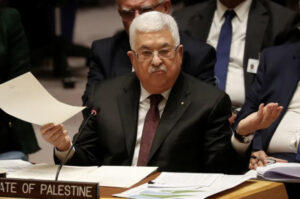 Daoud Kuttab: The spiraling debate between Tel Aviv and Washington has included a request by the Israeli leadership that the US stay out of the country’s internal affairs.
Daoud Kuttab: The spiraling debate between Tel Aviv and Washington has included a request by the Israeli leadership that the US stay out of the country’s internal affairs.
While this request would be logical for a sovereign state, it is illogical for states that do not respect their own international commitments or the UN Charter. In the post-Second World War order, member states are obliged to abide by both the spirit and the text of their international commitments. The preamble of UN Security Council Resolution 242 notes “the inadmissibility of the acquisition of territory by war.” The same resolution also highlights the need to work for a just and lasting peace in the Middle East. What has transpired in Israel for some time, particularly under Prime Minister Benjamin Netanyahu, is totally opposed to this.
A senior Israeli official — Finance Minister Bezalel Smotrich, who is also a member of the all-important security Cabinet and is overseeing the situation in the Occupied Territories — spoke and acted in total opposition to this commitment. No Israeli official is even speaking or working toward a “just solution,” as the current Netanyahu administration is not even making superficial attempts to hold political negotiations to end the long-rejected military occupation or colonial (and illegal) settlement enterprise.
Furthermore, in a speech at a French right-wing forum and behind a lectern that included a map showing the so-called Greater Israel, covering Palestine, Jordan and parts of Syria and Lebanon, Smotrich negated the very existence of the Palestinian people. He appeared to hint at the possibility of their expulsion and the annexation of Palestinian land because, in his eyes, there is “no such thing as Palestinians.” This racist and dangerous senior Israeli official has been neither fired nor publicly criticized.
Therefore, in light of the continued rejection of any peace efforts, and in heeding Israel’s own request that others should not interfere in its policies, there is now little justification for the US and others to continuously defend Israel in international forums.
What is needed is not the repetition of diplomatic rhetoric condemning Israel or even lip service to the two-state solution. What is needed is an international position that seriously reinforces the world’s commitment to Palestinian self-determination.
A resolution at the UN Security Council recognizing Palestine as a full member state would confirm what the majority of member states have already decided and would force Israel to negotiate with the state of Palestine on issues of borders and bilateral relations.
European parliaments have also overwhelmingly recommended their governments do the same. But rather than acting separately, as Sweden did when it recognized Palestine, European countries have chosen to do so collectively at the right time and with the ability to make a difference. What better time than now?
The US could also add its support by voting for or at least abstaining from such a vote in the UNSC. According to the latest Gallup poll, 49 percent of American Democrats sympathize more with the Palestinians, compared to 38 percent being more sympathetic toward the Israelis. Now — a long time before the next US presidential campaign begins — might be politically the best time for the Biden administration to take such a courageous decision. This would be the prerogative of the White House and does not need the support of Congress.
A vote for full membership for Palestine would send the message to Israel that its days of getting carte blanche from the US and other Western countries are now numbered, both in terms of Israel’s democratic status and its attitude toward its Palestinian and Arab neighbors.
In addition to recognizing Palestine as a state under occupation, the world community — along with nearby Arab countries — must work hard with the Palestinian people to help decouple them from an unhealthy dependence on Israel. The Palestinian economy must be freed from this forced dependence and serious efforts need to be made to help reach full independence. While this might require additional resources, the Palestinian people are resilient enough to be able to continue building not only an independent country but also a country based on democratic transparency and a true adherence to the separation of powers — an independent judiciary and a free press, along with genuine efforts for transparency and the rule of law.
In short, to deal with the situation in the Middle East, the world should — in order for its behavior to be consistent with its own values and principles — go beyond paying lip service to the two-state solution and delve into the implementation of such a position. It can start by recognizing Palestine and ensuring that it can be a contiguous, independent and democratic state living in peace with all its neighbors.
Author: Daoud Kuttab is a Palestinian journalist from Jerusalem. He is a former Ferris Professor of Journalism at Princeton University.





